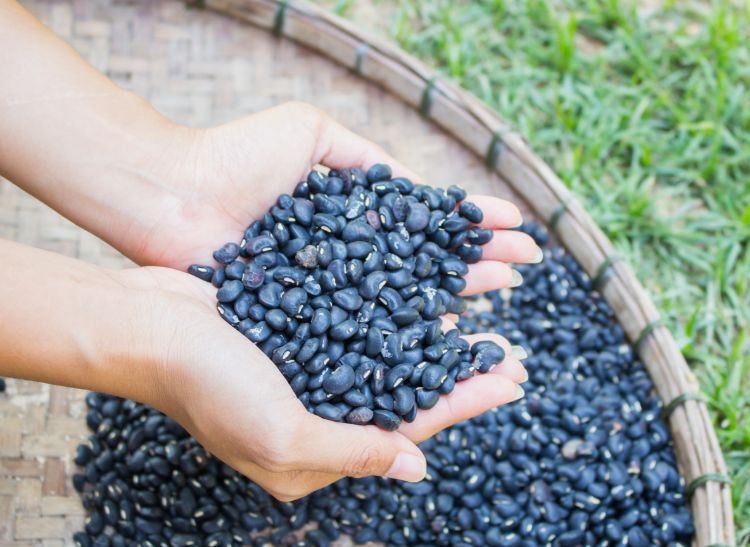Next time you see your doctor, here are 12+ questions about magnesium you'll want answers to
It's pretty uncommon to find a magnesium
deficiency in healthy individuals. If you're concerned with your overall
health, schedule a physical examination with your physician to rule out
any health-related problems. Pay attention to warnings signs of a magnesium deficiency; left untreated, a deficiency can result in very poor health.
Once
you make an appointment with your physician, it's important to address
all of your concerns relating to a magnesium deficiency. Should you
change your diet? Should you take a supplement? Are there things you
should or shouldn't do? Here are 12 questions to ask your doctor about
magnesium deficiency.
1. What is the cause of magnesium deficiency?
In healthy individuals, it's extremely rare to find patients with low levels of magnesium. Low magnesium levels typically indicate a health-related condition. Magnesium deficiency is usually found in patients with chronic alcoholism, disease and/or advanced age.
In healthy individuals, it's extremely rare to find patients with low levels of magnesium. Low magnesium levels typically indicate a health-related condition. Magnesium deficiency is usually found in patients with chronic alcoholism, disease and/or advanced age.
2. What are the effects of low magnesium levels?
Early symptoms of a deficiency may present as loss of appetite, nausea, vomiting, lethargy and weakness. If the deficiency is left untreated, symptoms may progress to include numbness, tingling, cramps, personality changes and abnormal heart rhythms.
Early symptoms of a deficiency may present as loss of appetite, nausea, vomiting, lethargy and weakness. If the deficiency is left untreated, symptoms may progress to include numbness, tingling, cramps, personality changes and abnormal heart rhythms.
3. Is magnesium deficiency a sign of disease?
Individuals with type 2 diabetes, gastrointestinal diseases or alcohol dependence typically show signs of a deficiency. Older adults may show signs of magnesium deficiency, too, as they may have chronic diseases or take medications that alter their magnesium status.
Individuals with type 2 diabetes, gastrointestinal diseases or alcohol dependence typically show signs of a deficiency. Older adults may show signs of magnesium deficiency, too, as they may have chronic diseases or take medications that alter their magnesium status.
4. Can a magnesium deficiency result in death?
Because magnesium deficiency typically goes hand-in-hand with a disease or health condition, ignoring symptoms of the deficiency may result in death. Individuals can live healthy lives if they are treated for a disease and its symptoms.
Because magnesium deficiency typically goes hand-in-hand with a disease or health condition, ignoring symptoms of the deficiency may result in death. Individuals can live healthy lives if they are treated for a disease and its symptoms.
5. Can diet change the status of magnesium deficiency?
If a physician determines a patient does not require magnesium supplements, he may suggest improving the quality of a daily diet. A diet rich in magnesium is essential to overall good health.
If a physician determines a patient does not require magnesium supplements, he may suggest improving the quality of a daily diet. A diet rich in magnesium is essential to overall good health.
6. Should I take magnesium supplements?
Patients should not take supplements without the approval of a physician. If a physician determines a patient needs magnesium supplements, do not exceed the amount prescribed. Too much magnesium, in the form of a supplement, can do harm to the body.
Patients should not take supplements without the approval of a physician. If a physician determines a patient needs magnesium supplements, do not exceed the amount prescribed. Too much magnesium, in the form of a supplement, can do harm to the body.
7. Can I reverse the damage from alcohol-related magnesium deficiency?
A physician can determine the course of action to take to reverse alcohol-related damage to the body. Sometimes the damage cannot be undone; however, a proper diet is essential to prevent further damage. The first step to preventing alcohol-related deficiencies is to stop consuming alcohol.
A physician can determine the course of action to take to reverse alcohol-related damage to the body. Sometimes the damage cannot be undone; however, a proper diet is essential to prevent further damage. The first step to preventing alcohol-related deficiencies is to stop consuming alcohol.
8. What foods are rich in magnesium?
Leafy green vegetables, such as kale and spinach, are rich in magnesium. For more food options, read the 12 magnesium-rich foods you should know about. Try to eat a balanced meal every day and incorporate magnesium-rich snacks into your diet, too.
Leafy green vegetables, such as kale and spinach, are rich in magnesium. For more food options, read the 12 magnesium-rich foods you should know about. Try to eat a balanced meal every day and incorporate magnesium-rich snacks into your diet, too.
9. Does water have magnesium?
Water does contain magnesium, but it's only a very small trace of the mineral. One cup of water contains 2 mg of magnesium. Water is essential to your health, though, so drink up.
Water does contain magnesium, but it's only a very small trace of the mineral. One cup of water contains 2 mg of magnesium. Water is essential to your health, though, so drink up.
10. Is milk a good source of magnesium?
Both cow's milk and soy milk contain magnesium. Soy milk has 61 mg of magnesium per cup, whereas cow's milk has approximately 25 mg per cup. Drink milk to increase levels of magnesium and prevent depletion of calcium.
Both cow's milk and soy milk contain magnesium. Soy milk has 61 mg of magnesium per cup, whereas cow's milk has approximately 25 mg per cup. Drink milk to increase levels of magnesium and prevent depletion of calcium.
11. Are there any magnesium-rich spices or dips to add to food?
Ground black pepper contains 12 mg of magnesium per 1 tbsp. If you like peanut butter, spread it on vegetables and crackers for a boost of magnesium. A mere 2 tbsp. of peanut butter provides 49 mg of magnesium.
Ground black pepper contains 12 mg of magnesium per 1 tbsp. If you like peanut butter, spread it on vegetables and crackers for a boost of magnesium. A mere 2 tbsp. of peanut butter provides 49 mg of magnesium.
12. What can I do to ensure I'm getting enough magnesium in my diet?
Eat a wall-balanced meal of grains, fruits, vegetables and lean meats to keep magnesium levels up. If you feel lethargic, weak, have a loss of appetite and feel bouts of nausea, make an appointment with your physician. Your doctor can take tests to ensure you do not have a magnesium deficiency.
Eat a wall-balanced meal of grains, fruits, vegetables and lean meats to keep magnesium levels up. If you feel lethargic, weak, have a loss of appetite and feel bouts of nausea, make an appointment with your physician. Your doctor can take tests to ensure you do not have a magnesium deficiency.
12 magnesium-rich foods you should know about
How often during the day do you consider the
vitamins and minerals you are consuming in what you eat? Most people
don't do a mental breakdown of whether they are getting all the
essential nutrients they need through their food for a healthy body.
Thus they suffer from vitamin deficiency.
Magnesium
is necessary for normal heart rhythms, good muscle tone and a healthy
immune system. Getting the recommended daily intake (RDI) is really
quite easy if you know the right foods. For women younger than 31, the
RDI is 310 mg, and 31 and older it's 320 mg. Men's RDI is slightly
higher with the younger than 31 crowd at 400 mg and 31 and older at 420
mg. Check out the 12 magnesium-rich foods below and see how you're
doing.
1. Cooked spinach. To get a great jump on the day, the Mayo
Clinic recommends 1 cup of cooked spinach, which contains 150 to 160 mg
of magnesium.
2. Sunflower seeds. If being like Popeye is just not for you, dry
sunflower seeds aren't a bad place to go instead.One-fourth cup of
seeds will yield 128 mg of magnesium.

3. Black beans. One cup of cooked black beans yields 120 mg of
magnesium. Other legumes are also rich in magnesium, but black beans
seem to be the highest. If you are looking to incorporate black beans in
your diet, try this vegan black bean and caramelized onion burger recipe.

4. Almonds. For 105 mg of magnesium, eat one-fourth cup of dry almonds.

5. Sesame seeds. Although the phrase "Open sesame" may open doors
to hidden treasure, the seeds themselves are a treasure in and of
themselves. One ounce of sesame seeds yields 101 mg of magnesium.

6. Cashews. Many nuts contain high amounts of magnesium, and
cashews are right up there at the top. One ounce of cashews will net 82
mg of magnesium. They also make a great snack between meals.
7. Oatmeal. A great way to start the morning off is with a bowl
of oatmeal. One cup of cooked oatmeal contains 57.6 mg of magnesium –
not too shabby.

8. Tofu. For those who don't mind this white soybean curd, you
can get 53 mg of magnesium from a 3.5 ounce serving.

9. Peanut butter. Great for sandwiches, with chocolate or
eaten by the spoonful, peanut butter has 50 mg of magnesium in a
2-tablespoon serving.

10. Bananas. One medium banana yields 33 mg of magnesium. You can
make a peanut butter banana sandwich and get the benefits of both that
way, or simply lather some peanut butter on the banana for a lower-carb
treat.
11. Regular milk. Often, people stop drinking mild once they
become adults. Milk isn't just for kids. One cup of milk contains 32.8
mg of magnesium, an easy way to get this important mineral.

12. Dark chocolate. Dark chocolate is great for a number of
things. Its value in antioxidants and prebiotics (important for helping
probiotics survive). Dark chocolate is also a rich source of magnesium.
It contains 64 mg in a 1-ounce serving. Feel free to eat dark chocolate
with a guilt-free conscience.

Magnesium is such an important mineral to the
body's health. Don't skimp on it. Eat in a healthy manner. By being
mindful of the foods above, you can easily track how much you're
getting. Eat healthy, and keep your body happy!